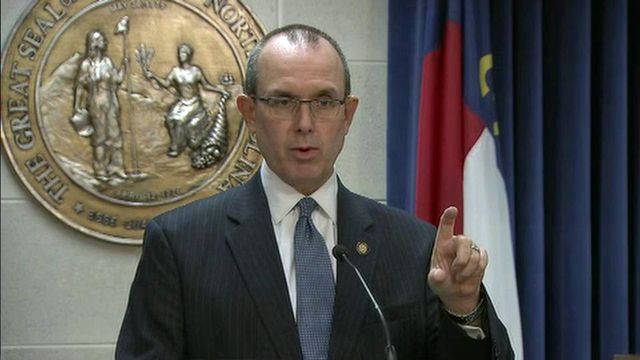Senators target religious exemption for vaccines
A bill filed Thursday by three senators would repeal the state's religious exemption for vaccines.
Posted — UpdatedSenate Bill 346, sponsored by Sens. Jeff Tarte R-Mecklenburg, Tamara Barringer, R-Wake, and Terry Van Duyn, D-Buncombe, would also add influenza B and polio to the list of required vaccinations for school enrollment, as well as others recommended by the federal Centers for Disease Control and Prevention's Advisory Committee on Immunization Practices, with the exception of the HPV vaccine.
Under current state law, a parent or guardian of a child can exempt that child from school immunization requirements simply by submitting “a written statement of the bona fide religious beliefs and opposition to the immunization requirements.” Adults can also exempt themselves from required immunizations for colleges and universities.
Under the legislation, no religious exemption would be allowed, although medical exemptions would still be permitted with a doctor’s signature.
Van Duyn said Buncombe County has the state’s highest rate of religious exemptions. More than 4.5 percent of students enrolling in its schools there aren't vaccinated.
“We’re starting to see cases of diseases we thought we had eradicated,” like whooping cough, she said. “These diseases are not a thing of the past.”
Asked why the bill would repeal the religious exemption entirely, Tarte said it’s because it’s being so widely used that it’s violating “herd immunity,” the protective effect of vaccinated populations to shield people who cannot be vaccinated for medical reasons.
West Virginia and Mississippi have recently repealed their religious exemptions to vaccinations, he said. In the West Virginia case, the repeal was upheld by the 4th U.S. Circuit Court of Appeals. Rulings by that court are applicable in North Carolina.
“There’s never been a case that’s failed to uphold the ability to mandatorily vaccinate kids, especially when it endangers the public health,” Tarte said.
He also said that, among the world’s major religions and sects, only "Christian Scientists and the Taliban" have taken official positions opposing vaccines. He believes the religious exemption is often used to justify personal opposition instead, often based on faulty or misunderstood science.
North Carolina Christian Science spokeswoman Cynthia Barnett took issue with Tarte's remark.
"Sponsor Senator Tarte was mistaken when he said that our Church has a policy against vaccinations. There is no such policy. Our churches leave health decisions up to individuals and do not tell them what to do," Barnett said in an email to WRAL News.
The bill will likely face an uphill battle in the Senate, where the majority recently approved new religious exemptions for magistrates and county registers of deeds with regard to same-sex marriage. Sponsors of that proposal argued the state cannot restrict the free practice of religion.
Tarte, who voted against that bill, said the context for the vaccination bill is different.
“The intent is not to violate the First Amendment,” he said, “but public health is imperative. Your rights stop at the point you start infringing on everyone else’s rights.”
John Rustin, president of the North Carolina Family Policy Council, said he was still reviewing the bill Thursday and wasn't prepared to comment on it.
Sarah Preston, policy director for the state chapter of the American Civil Liberties Union, said lawmakers need to balance public health with religious freedom in crafting a vaccination policy.
"Policies designed to prevent the spread of communicable diseases should be as minimally intrusive as possible in order to achieve the government’s compelling interest in protecting children from the risk of significant harm or death," Preston said in an email to WRAL News.
Related Topics
• Credits
Copyright 2024 by Capitol Broadcasting Company. All rights reserved. This material may not be published, broadcast, rewritten or redistributed.






